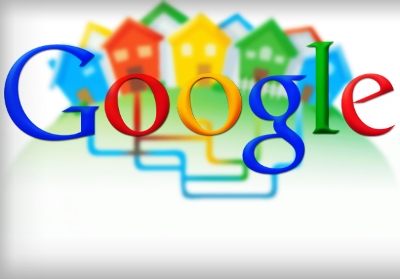Google Fiber Fever to “Hit Your Neighborhood”—Maybe
By Jotham Sederstrom July 31, 2013 8:00 am
reprintsOn Friday, Google Fiber told everyone reading its blog to “keep an eye out,” because it just might be bringing “Fiber Space” to your neighborhood. The buzz about town is that Google will become the new broadband infrastructure provider, possibly even wiring the whole United States the same way it did Kansas City.
Fred Campbell, a former Federal Communications Commission official who now works for the Competitive Enterprise Institute, wrote the following:
 “Google received stunning regulatory concessions and incentives from the local governments they set up camp with, including free access to virtually everything the city owns or controls: rights of way, central office space, power, interconnections with anchor institutions, marketing and direct mail, and office space for Google employees. City officials also expedited the permitting process and assigned staff specifically to help Google. One county even offered to allow Google to hang its wires on parts of utility poles—for free—that are usually off-limits to communications companies.”
“Google received stunning regulatory concessions and incentives from the local governments they set up camp with, including free access to virtually everything the city owns or controls: rights of way, central office space, power, interconnections with anchor institutions, marketing and direct mail, and office space for Google employees. City officials also expedited the permitting process and assigned staff specifically to help Google. One county even offered to allow Google to hang its wires on parts of utility poles—for free—that are usually off-limits to communications companies.”
Other news outlets have confirmed these points with hard facts.
“Google would like to see more fiber networks—ideally provided by someone else—so that it can provide more content,” said Roslyn Layton, a Ph.D. fellow studying broadband at the Center for Communication, Media and Information Studies at Aalborg University and working for Strand Consult. “It is one of the largest users of bandwidth and does not contribute to the cost of infrastructure, outside of its own servers, which is considerable.”
Rafi Kronzon, CEO of Cartwheel, agreed, although he cast some doubt on the enterprise.
“Google Fiber is nothing more than part publicity stunt, part campaign to encourage others to build,” Mr. Kronzon said. “Why would a company as profitable as Google ever want to enter the insanely capital-intensive business of being an Internet service provider?”
Indeed, Google is just as brilliant at public relations as it is at search engines. The press has been emboldened by Google unveiling fiber networks in Austin, Texas, and Provo, Utah—people are fascinated by fiber, but the economics of fiber are more difficult.
And Google’s not really the risk-taker here.
“The business model brings fiber to a curb and then relies on existing DSL lines for the rest of the way. It is DSL providers, not Google, that are making the biggest investment in Fiber, along with cable companies,” said Ms. Layton. “For Google to continue to grow its advertising model, it needs to provide ever more content to its users, especially video, which requires broadband. Remember, Google does not pay network providers to deliver its content to users.”
She continued, “In Kansas City, Google has free rights of way, free electricity and free marketing/mail services, and if the business doesn’t work out, Google gets to just leave. Google could sooner disrupt the larger pie of television advertising, where they are unregulated, than go into the telecom business.”
However, if network providers could get the same concessions as Google, particularly the expediting of permits by local government, we could have a lot more fiber networks in America.
Jeff Pagano, client services manager at Power Consulting Group, recognized that there’s something in it for the governments as well.
“A lot of how Google decides where to deploy their fiber network has to do with local government officials looking for a tithe for the privilege of providing service to their constituents,” he said.
Still, Mr. Pagano thinks it may be onto something if it does try to bring it to New York City.
“Since your landlord controls which services are in the building, Google Fiber, delivering Internet at 1 gigabyte per second at $70 per month, would free businesses from having subpar Internet speed or breaking their bank,” Mr. Pagano said. “Faster Internet means less waiting and more productivity, plain and simple. For certain content-based businesses like video production, it can literally translate into more revenue.”
Also worth noting: at the Mobile World Congress in 2010, Google Chairman Eric Schmidt said, “We will not invest in broad-scale infrastructure. We will let the carriers do it. However, we will do a 1 gigabit test.”
While this doesn’t mean that Eric Schmidt can’t change his mind, it is the answer to a direct question of whether Google would invest in infrastructure.
“We don’t know that Google has no long-term strategy to invest in infrastructure, but I doubt it. They are using Kansas City as a demo project, which has low cost and low risk. Provo is also low-risk,” said Ms. Layton. “Austin is just for the cool factor. Google uses these projects as learning experiences and a seat at the table.”
She went on to say that Google has already received a complaint from the FCC for net neutrality violations involving Google Fiber.
“Very quickly, they are learning that telecommunications is a different business with a lot of regulation, unlike the world of search engines, where they have very little regulation,” Ms. Layton concluded.
Well, we know one thing for sure: Google’s definitely very good at public relations. In fact, it’s brilliant at it. We tried to call for comment, but were told by a chipper recording that Google Fiber was not available in our area and were politely hung up on.
Guess they don’t want anybody asking questions.



